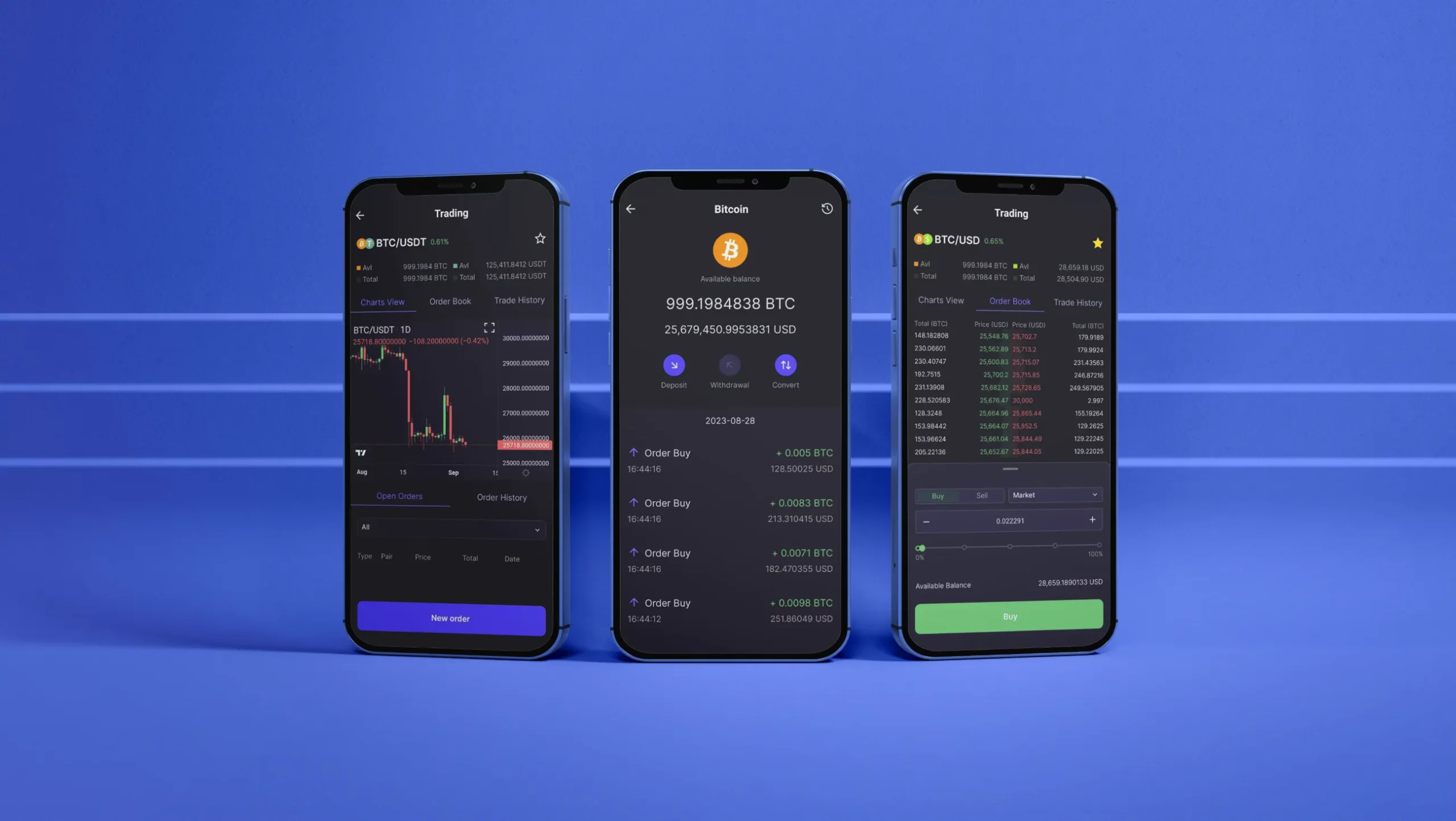- Crypto Solutions
- By business model
- By auction model
- Services
- Case studies
- Contact
The comprehensive UAE crypto regulations make the country a navel for emerging projects. It ranks No. 5 economic environment for the Middle East and North Africa (MENA). For this region, Dubai serves as a crypto domain capital.
A well-developed state program for IT and virtual resources facilitates legalization in Dubai. Let’s discuss its cryptocurrency normative regime. Further, we shall cover the core aspects of crypto guidelines in the Emirates.
Dubai Virtual Assets Regulatory Authority (VARA)
It operates as a single watchdog controlling crypto in Dubai. Its goals are:
- To assert the Emirate as a global headquarters for crypto projects;
- To inspire startups to launch here;
- To protect all participants: developers, investors, traders;
- To generate technologies for the financial sector;
- To counter unauthorized practices: money laundering, fraudulence;
- To elaborate principles for the efficient adoption of crypto.
VARA came into being in 2022 to draw virtual currencies into Dubai. Its government had invited cryptocurrency companies even before Dubai published any regulation. A drafted Virtual Assets Law and VARA aided the UAE emerging as a powerhouse for the crypto sphere.
VARA Rulebooks
On February 7, 2023, VARA reported a normative document. It consists of:
- 4 Compulsory Rulebooks,
- 7 Service-Specific Rulebooks.
The Compulsory document covers topics from Compliance and Risk Management to Marketing. In the Service-Specific Rulebooks, VARA enacts norms for provided crypto services, from Advisory to Investments.
Only VARA licensed businesses knock under the 4 Compulsory Rulebooks. The 7 Service-Specific Rulebooks are obligatory for projects that have obtained VARA permission to render this service.
Rulebooks insights
The Rulebooks aim to:
- Import sustainability,
- Protect from fraud,
- Explain authorized activities,
- Advance innovations.
This normative act is broad-based. Many analysts fear lest it be hard to oversee all requirements. Others declare that this sphere needs a coherent manual, maximally direct, to ensure standardization.
However all-encompassing, there is room for perfection. In the Issuance Rulebooks, VARA does not highlight stablecoins. This is when the top regulators, the UK, USA, Hong Kong, dedicate documents primarily to this virtual money. The VARA’s Issuance Rulebook is fixated on tokenized resources, NFT prevailing.
Meanwhile, the VARA regulation, prohibits non-traceable tokens or privacy crypto in the UAE. Yet, if they are coined with a technology that allows tracing, privacy tokens are permitted.
Licensing In Dubai
Even though the emirate enunciates the heart of the crypto industry, licenses are not distributed right and left. Dubai licensing is complex. It incorporates 4 levels:
- MVP Provisional
- MVP Preparatory
- MVP Operational
- FMP Operational
*MVP refers to a Minimum Viable Product
*FMP refers to a Full Market Product
At Provisional and Preparatory levels, a crypto company cannot provide virtual asset services. It can do so from Level 3, with an Operational MVP. Moreover, this license allows working with institutional customers and certified investors. Operational FMP from Level 4 opens doors to operations with retail clients.
No crypto businesses have yet acquired a VARA Operational FMP. The first company to receive a VARA’s approval is Hex Trust. On February 17, 2023, it got an Operational MVP which allows this company to provide Custody and Staking services for institutional clients and investors.
Companies with Provisional MVP: BitOasis, CoinMENA, MidChains, Scallop; Bybit, Huobi, OKX, Equity, Crypto.com; Zamp; Amber Group, Brevan Howard, NineBlocks, TPS Capital, BRE Holdings, Fintonia Group, NOIA Capital, Q9 Capital.
Companies with Preparatory MVP: GCEX, Komainu, Binance.
License fees
To file an application for a license in Dubai, you must prepare documents for a chosen virtual asset activity. Then, you pay an application fee, from 40,000 to 100,000 AED. If you submit for two or more licenses, you receive a 50% discount for a lower application fee. You also need to compensate for supervision, from 80,000 to 200,000 AED annually.
You pay an application fee when submitting documents for a license. However, paying doesn’t guarantee the license. An Annual Supervision duty must be paid before you start offering virtual asset services. Besides, VARA can charge extra commissions.
Fees raise concern. Some specialists claim application costs are high. Big companies can manage them. But promising startups who want to set up in a crypto-friendly environment may fail to do so.
Whereas others insist that Dubai’s fees are reasonable. Such a heavy charge should help to sieve away unwanted projects. They argue that respectable companies, even novice ones, will have no problem attracting investors. Plus, this high duty can protect the industry.
UAE: Hub For Web3
Along with Saudi Arabia, the UAE is a primary arrival place for web3 technologies on MENA territories. Startups based on decentralization, blockchain and tokens can enjoy maximum comfort here. Unlike Saudi Arabia, where operations with virtual tokens are unallowed, the Emirates promote cryptocurrencies to diversify the economy.
The country’s positive attitude towards technologies contributes immensely to metaverses. Last year, Dubai elaborated a scenario. Within the next 8 years, the metaverse is predicted to bring 3.3 billion USD to the UAE GDP on a yearly basis. Moreover, by 2030 the metaverse may prepare 40,000 jobs.
Additionally, in February 2023, Abu Dhabi contributed 2 billion USD to favor web3 businesses. This investment, combined with convenient legal frameworks, should engage international companies to plow into this region.
UAE Cryptocurrency Regulation
The UAE’s success with cryptocurrencies starts with the country’s hospitality towards innovations in general, virtual money in particular. Technology-oriented, it opens doors to a civilized implementation of digital finance. The UAE administration sets up watchdog committees, shapes regulation documents, pulls in crypto giants.
Abu Dhabi
In 2018, Abu Dhabi founded a panel that studies the impact of cryptocurrencies on the economy. Through this process, the researchers found that virtual currencies could propel the economic structure, with protocols drafted.
The Financial Services Regulatory Authority (FSRA) is an oversight division for the Abu Dhabi Global Markets (ADGM). In 2018, it was the first UAE watchdog to design a thorough normative document for crypto activities.
In 2020, the Authority released a document coordinating operations with digital securities in the ADGM. Two years later, it delivered the Guidance on the Regulation of Virtual Asset Activities.
In the Guidance, the FSRA imposes specifications for virtual asset providers, from capital prerequisites to personnel control. This document also talks about stablecoins, NFT, application procedures, and fees.
Ras Al Khaimah (RAK)
This year the Ras Al Khaimah executives reported a new free zone. These territories have a unique legal order, other than the rest of a city or country. Free zones function under exclusive taxation and customs principles.
The RAK free zone is going to be the first economic site meant exclusively for virtual assets. Projects will relate to the evolving web3 sector: blockchain, NFT, DAO, Dapp. Companies can apply from April, 2023.
Initially, it is likely that RAK free zone projects will provide solely non-financial activities, meaning no exchanges. The administration directs attention on breakthrough concepts potent to model the future.
Key Takeaways
The UAE foundation for virtual asset technologies is advantageous. Its executives cherish web3 and strive to configure current legal frameworks. Key emirates, Dubai and Abu Dhabi, already function as crypto centers. New emirates, Ras Al Khaimah, will join shortly. It is the right time to launch a crypto launchpad in the UAE jurisdiction.
Quick note! Regulations are in progress. There may be changes. We recommend you update the details with a legal team.








